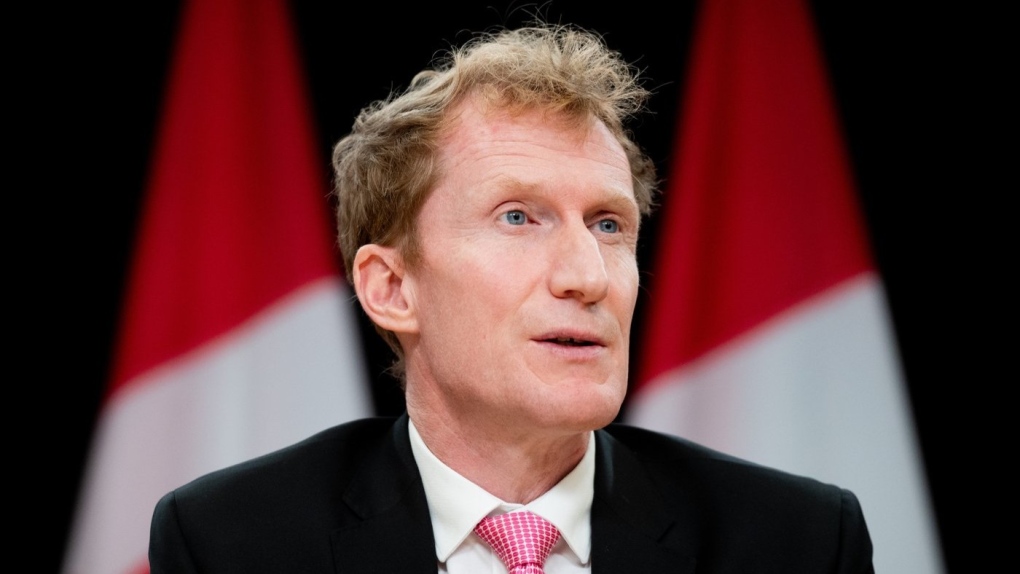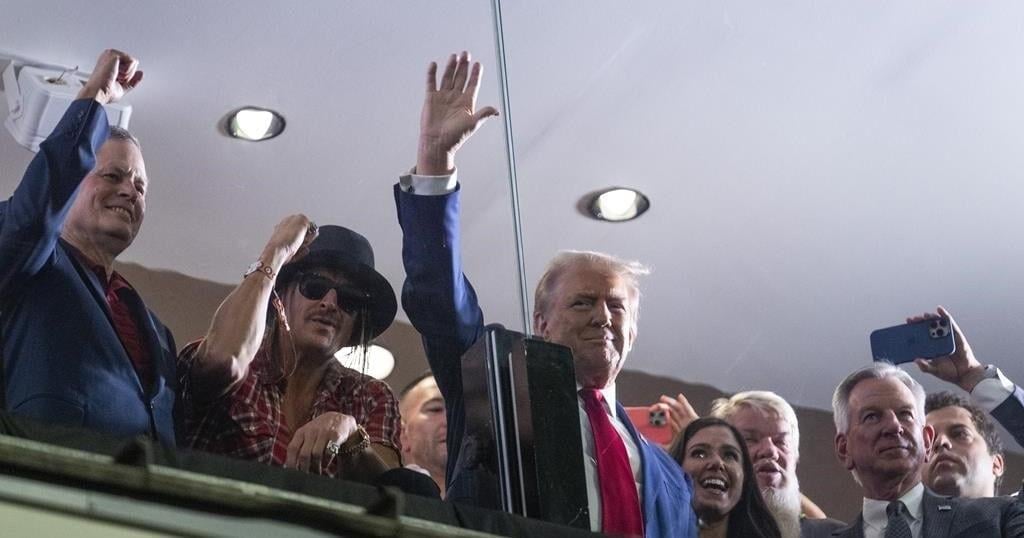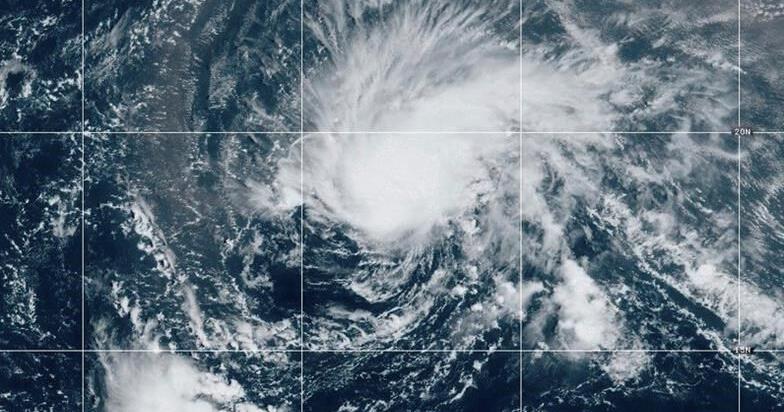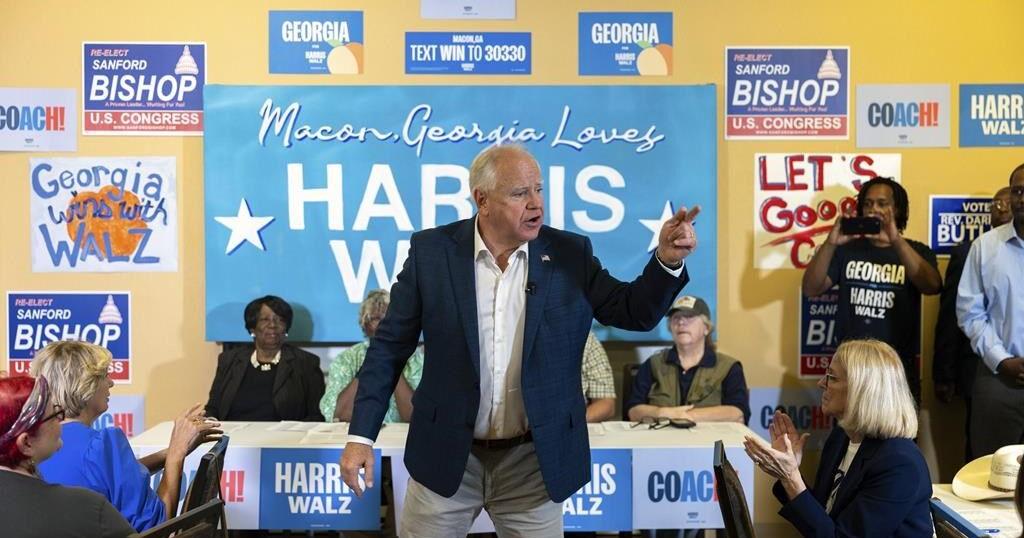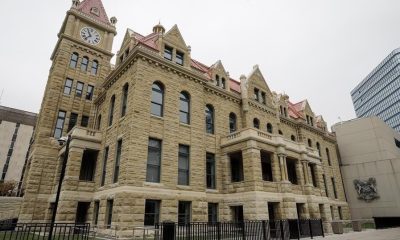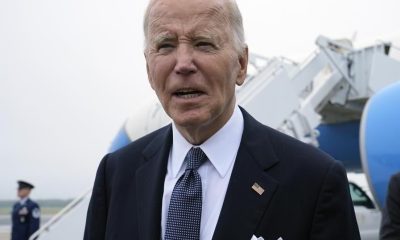TUSCALOOSA, Ala. (AP) — As Donald Trump railed against immigrants Saturday afternoon in the Rust Belt, his supporters in the Deep South had turned his earlier broadsides into a rallying cry over a college football game as they prepared for the former president’s visit later in the evening.
“You gotta get these people back where they came from,” Trump said in Wisconsin, as the Republican presidential nominee again focused on Springfield, Ohio, which has been roiled by false claims he amplified that Haitian immigrants are stealing and “eating the dogs … eating the cats” from neighbors’ homes.
“You have no choice,” Trump continued. “You’re going to lose your culture. You’re going to lose your country.”
Many University of Alabama fans, anticipating Trump’s visit to their campus for a showdown between the No. 4 Crimson Tide and No. 2 Georgia Bulldogs, sported stickers and buttons that read: “They’re eating the Dawgs!” They broke out in random chants of “Trump! Trump! Trump!” throughout the day, a preview of the rousing welcome he received early in the second quarter as he sat in a 40-yard-line suite hosted by a wealthy member of his Mar-a-Lago club in Florida.
Trump’s brand of populist nationalism leans heavily on his dark rendering of America as a failing nation abused by elites and overrun by Black and brown immigrants. But his supporters, especially white cultural conservatives, hear in that rhetoric an optimistic patriotism encapsulated by the slogan on his movement’s ubiquitous red hats: “Make America Great Again.”
That was the assessment by Shane Walsh, a 52-year-old businessman from Austin, Texas. Walsh and his family decorated their tent on the university quadrangle with a Trump 2024 flag and professionally made sign depicting the newly popular message forecasting the Alabama football team “eating the Dawgs.”
For Walsh, the sign was not about immigration or the particulars of Trump’s showmanship, exaggerations and falsehoods.
“I don’t necessarily like him as a person,” Walsh said. “But I think Washington is broken, and it’s both parties’ faults — and Trump is the kind of guy who will stand up. He’s a lot of things, but weak isn’t one of them. He’s an optimistic guy — he just makes you believe that if he’s in charge, we’re going to be all right.”
The idea for the sign, he said, grew out of a meme he showed his wife. “I thought it was funny,” he said.
Katie Yates, a 47-year-old from Hoover, Alabama, had the same experience with her life-sized cutout of the former president. She was stopped repeatedly on her way to her family’s usual tent. Trump’s likeness was set to join Elvis, “who is always an Alabama fan at our tailgate,” Yates said.
“I’m such a Trump fan,” she said, adding that she could not understand how every American was not.
Yates offered nothing disparaging about Trump’s opponent, Democratic nominee and Vice President Kamala Harris, instead simply lamenting that she could not stay for the game and see Trump be recognized by the stadium public address system and shown pumping his fist on large video screens in the four corners of Bryant-Denny Stadium.
That moment came with 12:24 left in the second quarter, shortly after Alabama quarterback Jalen Milroe ran up the right sideline, on Trump’s side of the field, to give the Crimson Tide an eye-popping 28-0 lead over the Vegas-favored Bulldogs.
Trump did not react to Milroe’s scamper, perhaps recognizing that Georgia, not reliably Republican Alabama, is a key battleground in his contest against Harris. But when “the 45th president of the United States, Donald J. Trump” was introduced to the capacity crowd of more than 100,000 fans — all but a few thousand wearing crimson — Trump smiled broadly and pumped his fist, like he had done on stage in July after the bullet of a would-be assassin grazed his ear and bloodied his face.
The crowd roared its approval, raising cell phone cameras and their crimson-and-white pompoms toward Trump’s suite, where he stood behind the ballistic glass that has become a feature after two assassination attempts. A smattering of boos and a few extended middle fingers broke Trumpian decorum, but they yielded to more chants of: “USA! USA! USA!”
Indeed, not everyone on campus was thrilled.
“There is, I think, a silent majority among the students that are not with Trump,” argued Braden Vick, president of Alabama’s College Democrats chapter. Vick pointed to recent elections when Democratic candidates, including President Joe Biden in 2020, vastly outperformed their statewide totals in precincts around the campus.
“We have this great atmosphere for a top-five game between these two teams, with playoff and championship implications,” Vick said, “and it’s just a shame that Donald Trump has to try to ruin it with his selfishness.”
Trump came as the guest of Alabama businessman Ric Mayers Jr., a member of Mar-a-Lago. Mayers said in an interview before the game that he invited Trump so that he could enjoy a warm welcome. And, as Mayers noted, Trump is a longtime sports fan. He tried to buy an NFL team in the 1980s and helped launch a competing league instead. And he attended several college games as president, including an Alabama-Georgia national championship game.
Mayers also invited Alabama Sens. Katie Britt and Tommy Tuberville. Britt, a former student government president at Alabama, delivered the GOP response to Biden’s last State of the Union address, drawing rebukes after using a disproven story of human trafficking to echo Trump’s warnings about migrants. Tuberville, a former head football coach at Auburn University, Alabama’s archrival, is a staunch Trump supporter.
Joining the politicians in the suite were musicians Kid Rock and Hank Williams Jr. Herschel Walker, a Georgia football icon and failed Senate nominee in 2022, traveled in Trump’s motorcade to the game.
Fencing surrounded parts of the stadium, with scores of metal detectors and tents forming a security perimeter beyond the usual footprint. Sisters of the Alpha Omicron Pi sorority showed their security wristbands before being allowed to their sorority house directly adjacent to the stadium. Bomb-sniffing dogs stopped catering trucks carrying food. Hundreds of TSA agents spread out to do a potentially unpopular job: imposing airport-level screening for each ticket-holder.
But what seemed to matter most was a friendly home crowd’s opportunity to cheer for Trump the same way they cheered the Crimson Tide, unburdened by anything he said in Wisconsin or anywhere else as he makes an increasingly dark closing argument.
“College football fans can get emotional and kooky about their team,” Shane Walsh said. “And so can Trump supporters.”
They didn’t even mind that Trump’s tie was not crimson. It was Georgia red.

